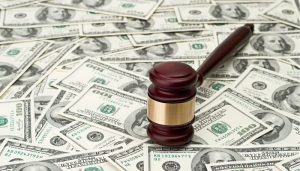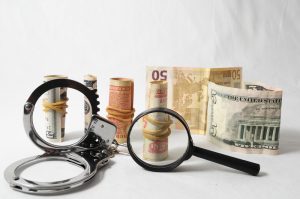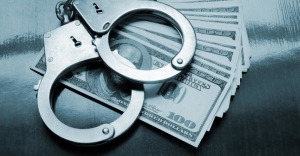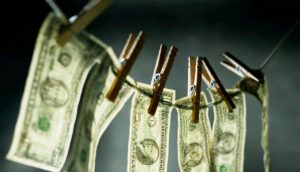Can I Deposit A Money Order With Bank Of America Mobile
 There have been a few topics concerning the act of using money orders to fabricate spending and essentially falsify transactions for whatever reason it may be. Many of us are probably not aware of this contentious debate, but because of the rise in these "transactions", banks have grown more sensitive to money order deposits. Due to their rise in sensitivity to even the slightest forms of suspicious activity, they are required to report any and all types of incidents as a precautionary measure. If you are considering to use money order deposits to manufacture spending, whether if its for a bonus requirement or to keep your account active, you may want to reconsider the risks and consequences especially when legality comes into play.
There have been a few topics concerning the act of using money orders to fabricate spending and essentially falsify transactions for whatever reason it may be. Many of us are probably not aware of this contentious debate, but because of the rise in these "transactions", banks have grown more sensitive to money order deposits. Due to their rise in sensitivity to even the slightest forms of suspicious activity, they are required to report any and all types of incidents as a precautionary measure. If you are considering to use money order deposits to manufacture spending, whether if its for a bonus requirement or to keep your account active, you may want to reconsider the risks and consequences especially when legality comes into play.
Money Order Basics:
 A money order is a payment order for a pre-specified type of payment. Think of it as a check but instead of having it linked to your bank account, a money order is already prepaid with the specified amount. Whether you are a novice or an avid user of money orders, you should be aware of the changes in what your bank may perform in order to prevent any suspicious activity and money laundering.
A money order is a payment order for a pre-specified type of payment. Think of it as a check but instead of having it linked to your bank account, a money order is already prepaid with the specified amount. Whether you are a novice or an avid user of money orders, you should be aware of the changes in what your bank may perform in order to prevent any suspicious activity and money laundering.
Legal Caution:
 If you have ever completed any non-regular banking activities or are thinking about it, then you should be aware of the risks that you are exposing yourself too. To prevent any type of money laundering, false transactions, and even drug trafficking, The Bank Secrecy Act of 1970 was established to monitor and regulate financial transactions. The treasury order explains that FinCEN, a bureau within the Treasury Department, has the duties and powers to:
If you have ever completed any non-regular banking activities or are thinking about it, then you should be aware of the risks that you are exposing yourself too. To prevent any type of money laundering, false transactions, and even drug trafficking, The Bank Secrecy Act of 1970 was established to monitor and regulate financial transactions. The treasury order explains that FinCEN, a bureau within the Treasury Department, has the duties and powers to:
- Maintaining a government-wide data access service with a range of financial transactions information
- Analysis and dissemination of information in support of law enforcement investigatory professionals at the Federal, State, Local, and International levels
- Determine emerging trends and methods in money laundering and other financial crimes
- Serve as the Financial Intelligence Unit of the United States
- Carry out other delegated regulatory responsibilities
The act places a burden on banks to detect any forms of suspicious activities in an attempt to prevent financial tampering. To make matters worse, banks are liable for not reporting these incidents and can either face outstanding fines or be shut down all together.
How They Detect Abnormal Activity:

Banks and many financial institutions use various methods to detect any type of abnormal activity including those who evade reporting them. It is not unusual for banks to use a software specific for detecting money laundering to analyze transactions and deposit history. The software scans for any type of activity that is deemed suspicious and any irregular transactions will be caught. It will only be harder from now on to hide these activities as the software's will continue to advance and everything will be seen.
Structuring:
 Structuring is the act of processing financial transactions in a way that avoids the reporting of that activity. Structuring in any case should always be avoided no matter the cause. It is illegal and a serious crime with heavy consequences that starts with a heavy fine or up to 5 years in prison or even both.
Structuring is the act of processing financial transactions in a way that avoids the reporting of that activity. Structuring in any case should always be avoided no matter the cause. It is illegal and a serious crime with heavy consequences that starts with a heavy fine or up to 5 years in prison or even both.
Money Orders in Fabricated Spending:

If you are planning to use money orders to fabricate spending, it is imperative that you do not under any circumstances avoid reporting. Not only is it an inconvenience for the bank, you are at risk of having your account shut down or jail time. Banks will monitor your account and report any incidences especially with excessive amounts of money order deposits. Some types of activity on bank accounts that may be deemed as suspicious may include depositing a large amount of money (more than $10,000) in lesser amounts over a short time span, depositing large amounts of money across multiple institutions, depositing less than $10,000 in money orders to evade the reporting requirements, and any activity that avoids the reporting incidents shouldn't be considered at all.
Tips for Using Money Order Deposits:

Some of us may be frequent users of money orders and may use them deposit into their accounts. Here are some tips to keep in mind if you plan on using money order deposits:
- Opt for an Uncommon or Smaller Financial Institution:Try to make your money order deposits at a smaller institution so it doesn't affect the relationship you may have with your primary bank. If you value anything at your current institution, you may not want to sacrifice what you have established with these transactions.
- Use a Business Account:It is not strange for business accounts to receive large sums of money deposited into their accounts. These include money order deposits as well. Heed the type of business account you are planning to open as it may factor into the reporting requirements.
- Build Loyalty:The longer you stay at a particular bank or institution, the less suspicious the money order deposits will be. A new account with large deposits right off the bat will face more scrutiny compared to an aged account that slowly builds up their deposit amounts.
- Velocity Rule:The rule explains how the speed of how funds flow through the account may be to your advantage. A sudden money order deposit may rise suspicion depending on the level of activity on the account.
| Bank/Credit Union | Positive (+) | Negative (-) | Positive At Low Volume (~) | Unknown/Can't Tell (?) |
|---|---|---|---|---|
| Alliant | 1 | 1, 2 | 1 | |
| Banco Popular | 1 | |||
| Bank of America | 1, 2, 3, 4, 5 | 1, 2, 3, 4, 5, 6 | 1 | |
| BB&T | 1 | |||
| BMO Harris Bank | 1 | 1 | ||
| Busey Bank | 1 | |||
| Capital One | 1 | 1 | ||
| Charles Schwab | 1, 2 , 3 , 4 | 1 , 2 | ||
| Chase | 1, 2, 3, 4 | 1 | 1 | |
| Citibank | 1, 2 | |||
| Citizens Bank | 1 | |||
| Digitial FCU | 1, 2, 3, 4, 5, 6 | |||
| Discover | 1, 2 | |||
| Dollar Bank | 1 | |||
| Ent CU | + | |||
| Everbank | 1 | 1, 2, 3, 4,5 | 1 | |
| Fifth Third Bank | 1 | 1 | ||
| First Convenience Bank (First National Bank of TX) | 1 | |||
| First Tech FCU | - | |||
| HSBC | 1 | |||
| Huntington Bank | 1, 2, 3 | |||
| KeyBank | + | 1, 2 | 1 | |
| M&T Bank | + | 1 | ||
| Mountain America CU | 1 | |||
| Nationwide Bank | 1 | |||
| Navy FCU | + | |||
| Northpointe Bank | 1 | |||
| PenFed | 1 | |||
| PNC Bank | 1, 2, 3, 4, 5, 6, 7 | 1, 2, 3 | ||
| Popular Community Bank | 1 | |||
| Santander Bank | 1 | 1 | ||
| Santa Rosa County FCU | 1 | |||
| Security Service FCU | 1 | |||
| Service CU | + | |||
| Simple | 1, 2, 3, 4 | 1 | ||
| Star One CU | 1 | 1 | ||
| State Farm Bank | 1 | 1 | ||
| Suntrust Bank | 1, 2, 3 | 1, 2 | ||
| TCF Bank | 1 | |||
| TD Bank | + | 1 | 1 | |
| TIAA Direct | 1, 2, 3 | |||
| UFB Direct | 1, 2, 3, 4 | |||
| U.S. Bank | 1, 2 | 1 | ||
| USAA | 1, 2, 3, 4, 5 | 1, 2, 3, 4, 5, 6 | 1, 2, 3 | |
| Wells Fargo | 1, 2, 3, 4, 5, 6, 7, 8, 9 | 1, 2, 3 | 1 |
Bottom Line:
Hopefully this post will give you an idea of banks sensitive to money order deposits. For those that are planning to engage in using money order deposits in order to fabricate spending, you should at least know what you are getting yourself into. Be aware of your bank's heightened sensitivity towards these particular transactions and know the different types of risks you are exposing yourself too. Personally, I would avoid any type of act that involves falsifying transactions. Dealing with the law is not an easy task and you are not likely to get out of unscathed. Do not, under any circumstances, engage in structuring. If you are interested in learning more about banking, check out our reviews onHow Do ACH Payments Work?,Bank Bonus Payout Times,Cashier's Check vs. Money Orders, and tips onHow To Open A Bank Account!


Can I Deposit A Money Order With Bank Of America Mobile
Source: https://www.hustlermoneyblog.com/banks-sensitive-to-money-order-deposits/
Posted by: trainordebtled.blogspot.com

0 Response to "Can I Deposit A Money Order With Bank Of America Mobile"
Post a Comment